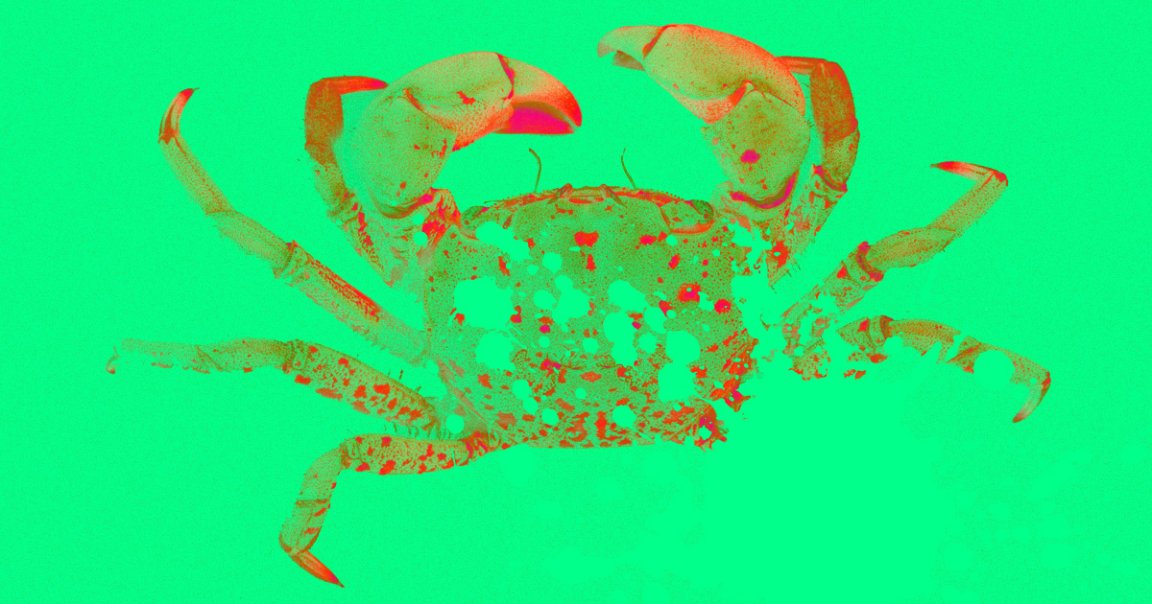
Acid Test
The world’s oceans absorb about 30 percent of the carbon dioxide released into the atmosphere. That means that as levels of CO2 in the atmosphere have increased, so too have levels in the seawater, leading to an increase in the water’s acidity.
Over time, a new study has found, the effect has become so pronounced that the Pacific Ocean’s increasingly acidic water is dissolving the shells of newly hatched Dungeness crabs.
Tiny Troubles
For the study, which was funded by the National Oceanic and Atmospheric Association (NOAA) and published in the journal Science of the Total Environment, an international team of researchers used a scanning electron microscope to analyze samples of Dungeness crabs collected during a 2016 NOAA research cruise.
That led to the discovery of larval Dungeness crabs with damage to their upper shells. Some of the crabs had lost the hair-like sensory structures they’d typically use to navigate their environments, and many of the damaged crabs were smaller than other larvae.
Crab Shortage
The discovery doesn’t just impact the Pacific ecosystem — it could also affect the economies of cities in the Pacific Northwest that catch and sell the crustaceans.
“If these larval crab need to divert energy to repair their exoskeletons and are smaller as a result, the percentage that make it to adulthood will be at best variable and likely go down in the long-term,” researcher Nina Bednarsek of the Southern California Coastal Water Research Project said in a news release.
READ MORE: Dungeness crab larvae already showing effects of coastal acidification [NOAA]
More on ocean acidification: Our Acidic Oceans Are Eating Away at Sharks’ Skin